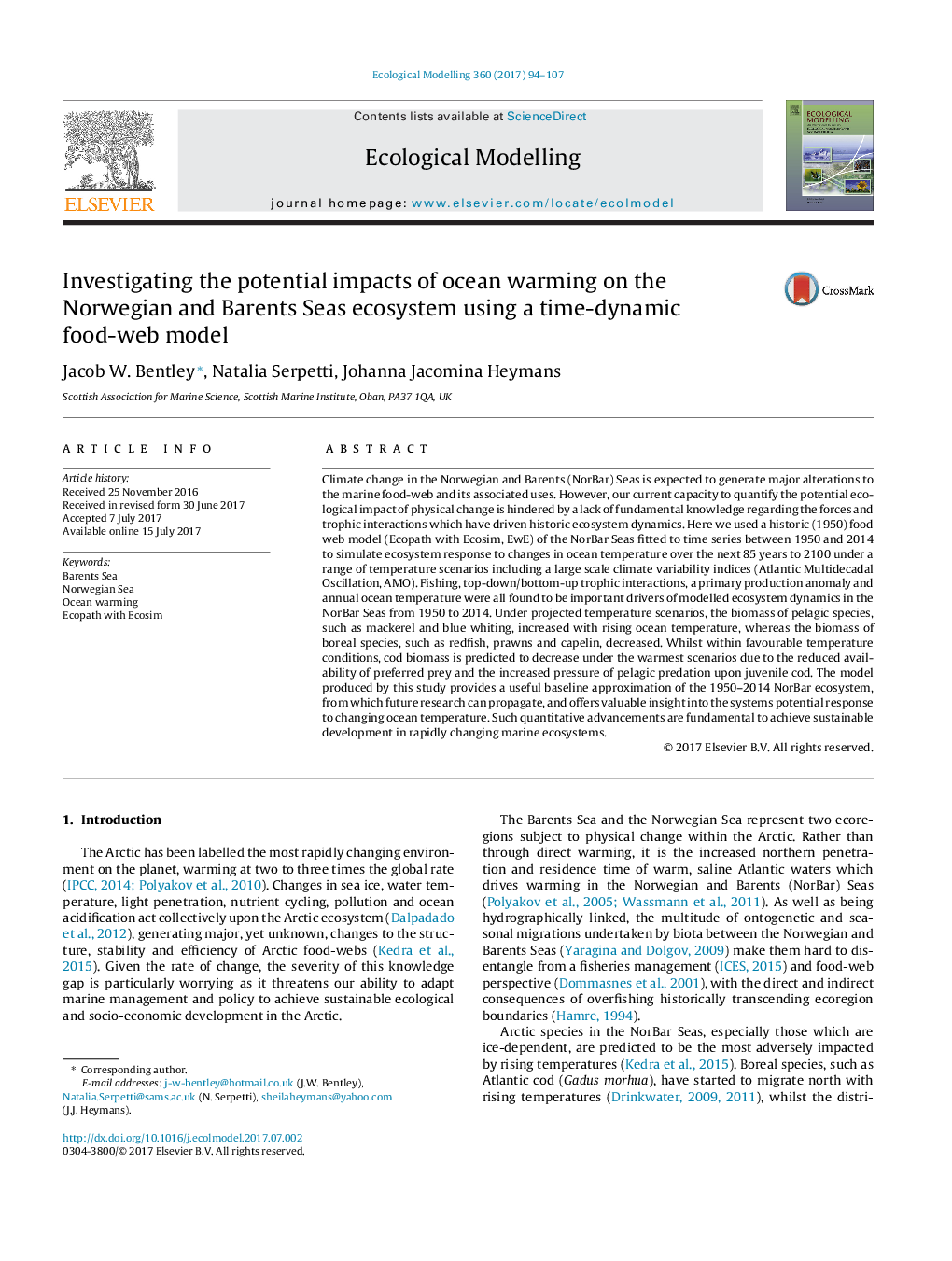| کد مقاله | کد نشریه | سال انتشار | مقاله انگلیسی | نسخه تمام متن |
|---|---|---|---|---|
| 5742051 | 1617387 | 2017 | 14 صفحه PDF | دانلود رایگان |
- We provide a data calibrated ecosystem model of the Norwegian and Barents Seas from 1950 to 2014.
- Past ecosystem trends driven by fishing, trophic interactions, primary production & temperature.
- Future ocean warming scenarios, from 2014 to 2100, are simulated using the calibrated model.
- Ocean warming threatens to significantly alter the ecosystems biomass composition.
- Boreal functional groups such as capelin decline whilst mackerel and small pelagic fish thrive.
Climate change in the Norwegian and Barents (NorBar) Seas is expected to generate major alterations to the marine food-web and its associated uses. However, our current capacity to quantify the potential ecological impact of physical change is hindered by a lack of fundamental knowledge regarding the forces and trophic interactions which have driven historic ecosystem dynamics. Here we used a historic (1950) food web model (Ecopath with Ecosim, EwE) of the NorBar Seas fitted to time series between 1950 and 2014 to simulate ecosystem response to changes in ocean temperature over the next 85 years to 2100 under a range of temperature scenarios including a large scale climate variability indices (Atlantic Multidecadal Oscillation, AMO). Fishing, top-down/bottom-up trophic interactions, a primary production anomaly and annual ocean temperature were all found to be important drivers of modelled ecosystem dynamics in the NorBar Seas from 1950 to 2014. Under projected temperature scenarios, the biomass of pelagic species, such as mackerel and blue whiting, increased with rising ocean temperature, whereas the biomass of boreal species, such as redfish, prawns and capelin, decreased. Whilst within favourable temperature conditions, cod biomass is predicted to decrease under the warmest scenarios due to the reduced availability of preferred prey and the increased pressure of pelagic predation upon juvenile cod. The model produced by this study provides a useful baseline approximation of the 1950-2014 NorBar ecosystem, from which future research can propagate, and offers valuable insight into the systems potential response to changing ocean temperature. Such quantitative advancements are fundamental to achieve sustainable development in rapidly changing marine ecosystems.
Journal: Ecological Modelling - Volume 360, 24 September 2017, Pages 94-107
